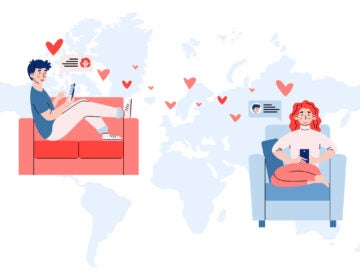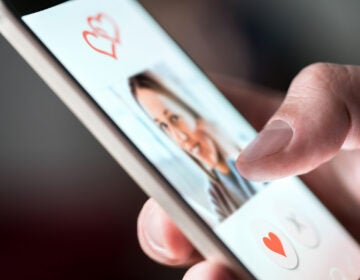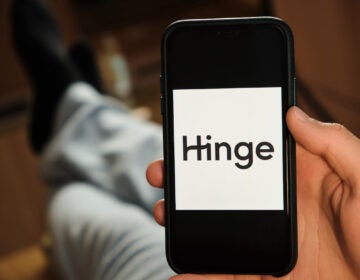Dating apps have a ‘gold mine’ of data on attraction, but does it lead to better matches?
Three in 10 U.S. adults have used a dating app, so what have researchers learned about human interaction, relationships and attraction from all of that data?
Listen 10:55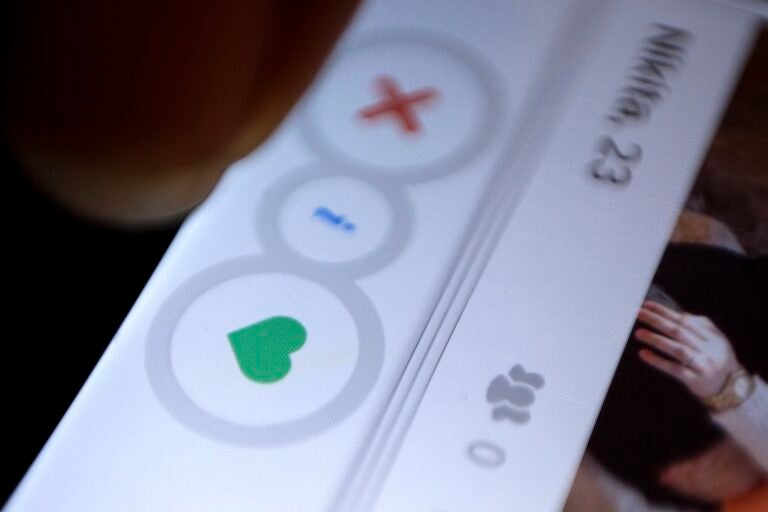
A man uses the dating app Tinder in New Delhi. (AP Photo/Tsering Topgyal, File)
This story is from The Pulse, a weekly health and science podcast.
Find it on Apple Podcasts, Spotify, or wherever you get your podcasts.
Jess Carbino was feeling lonely when she started a PhD program in sociology at the University of California Los Angeles in 2009, so she made an online dating profile. She saw a world of potential matches. She could also see how they, and other women her age, presented themselves to try and get dates.
“That was just fascinating to me, and I knew I had to study this,” she said.
Instead of studying parent-child relationships as planned, she studied online dating. But she needed access to data that online dating companies have, and she knew that it could cost more money than she could afford.
So, she made an agreement with a friend’s sister, who was a professional matchmaker and wanted to start a dating site. Carbino helped with the site and in exchange got all the data.
That site is no longer around, but Carbino eventually became famous as the in-house sociologist for the dating apps Tinder and Bumble. At those companies, she continued to study online dating, but now she had access to data from millions of users.
“You have access in a way that you don’t as an academic, where you can’t just go up to an engineer and say, ‘hey I’m interested in this question. Can you pull this data for me?’ And you get it by … the next day.”
She learned that when people look at profile pictures, they want someone who’s smiling and who seems kind and approachable, rather than a supermodel. She learned that people tend to read the bios more closely after matching with someone, and that many people struggled to write bios that stand out from a crowd.
And she learned what older users, people in their 60s or 70s, were looking for in relationships.
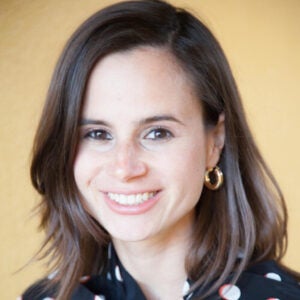
“They didn’t want to be a nurse or a purse. They didn’t want to have to take care of someone who they hadn’t known for a long time. They talked about, ‘My husband died. I took care of him, and I don’t want to have to monitor the health … for somebody who I’m just meeting now,’” said Carbino. “They also didn’t want to have to financially support someone else.”
Three in 10 U.S. adults have used a dating app, according to a 2023 survey from the Pew Research Center. UCLA social psychologist Ben Karney, who has been studying relationships for decades, said the apps, “are sitting on an absolute gold mine — a treasure trove of data on human interaction and relationships and attraction.”
Karney said the dating apps do not need to rely on people telling researchers what they find attractive.
“Often what people say they want doesn’t necessarily correspond to what they actually want,” he said. “People say that they want to watch documentaries, but what they actually watch is The Bachelor.”
Subscribe to The Pulse
There are drawbacks to studying the data from dating apps too: app users tend to be younger and more tech savvy, and the companies want their products to succeed instead of publishing research that may not translate to profit. But despite that, Karney said he has tried to convince the companies to give him and his colleagues access to their data, without success so far.
Since the mid 2000s, biological anthropologist Helen Fisher has been working for Match, the company that now owns some of the biggest names in online dating: Tinder, Hinge, Match.com and OkCupid. She does not study users of those services; the company commissions research from her, and she said that has been a blessing.
She pointed out that more than 15 million people from 40 countries have taken a questionnaire that she created to study personality traits.
“I never could have done that at an academic institution. I would have had data on 123 students in my basic anthropology classes,” Fisher said.
She said the work she does while at Match led her to understand personalities on a much deeper level. Her next book is about how she uses that knowledge to understand not just love, but human behavior more generally.
But despite how much knowledge the dating apps have led to, she said the one thing they cannot really do is promise you a perfect match.
“These dating sites are not even dating sites; they’re introducing sites.”
Fisher explained that the apps might narrow the playing field by suggesting people you might match with, or it could widen the playing field so much that people have trouble picking anyone.
Alexandra Solomon, a clinical psychologist, and professor at Northwestern University, added that whom you match with also depends on your state of mind. She teaches a very popular course called Marriage 101.
“We really can get seduced into thinking that attraction is about your snap gut reaction to a picture of that person, when in reality attraction has a lot to do about one’s own readiness to open oneself up,” she said. “You could meet the same person today and not be drawn to them. But if you meet them five years from now in a different moment in your life, perhaps you’ve just gone through a move, or you’ve just gone through a breakup, or you’ve just gotten a promotion where you are more primed. There are certain moments in our own lives that crack us open for relationship.”
Sociologist Jess Carbino reached the same conclusion and said she had not considered all those internal factors when she started her own online dating and research years ago.
“I was naive about how people’s personal hang-ups got in their way, and I study these demographic characteristics thinking that’s what matters: people are compatible in these ways. It should work.”
She said she realized that whether someone ended up being attracted to someone else came down to their childhood, past relationships, where they are in life. Factors that even the most well-resourced dating apps do not and cannot measure. Now she is working on a doctorate in clinical psychology.
As for her love life, dating apps have worked for her personally as well as her career. She found a partner after multiple dating apps matched them, and they are now married.
WHYY is your source for fact-based, in-depth journalism and information. As a nonprofit organization, we rely on financial support from readers like you. Please give today.





